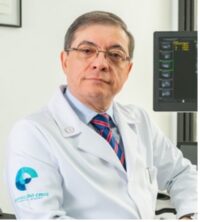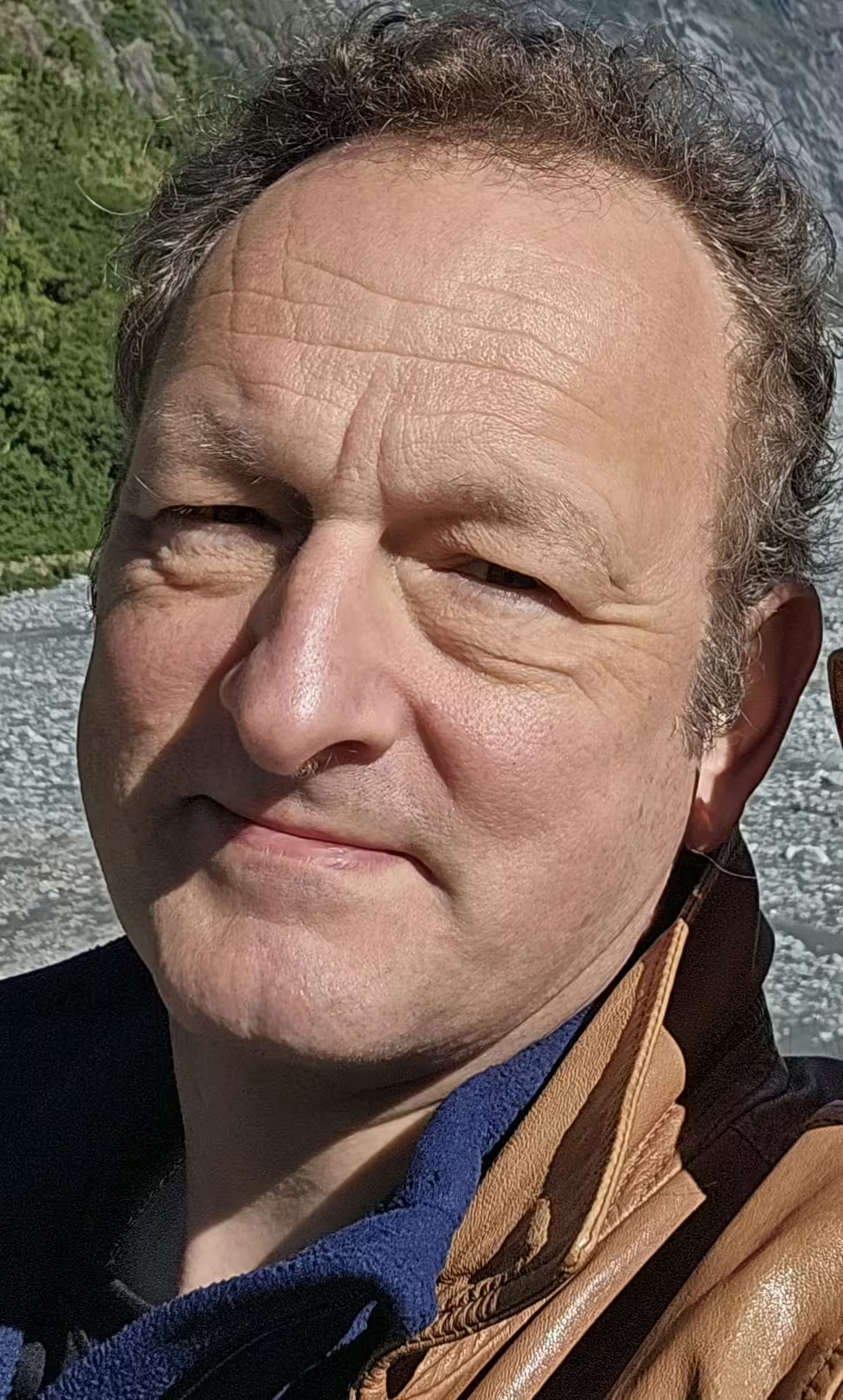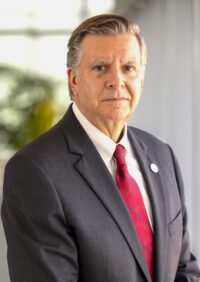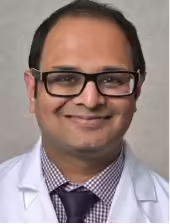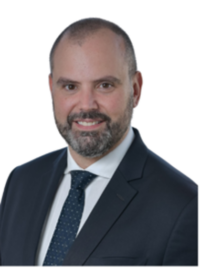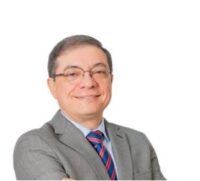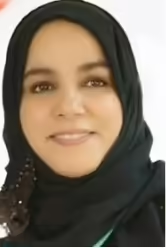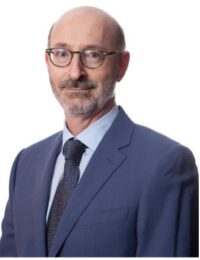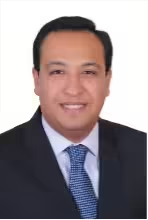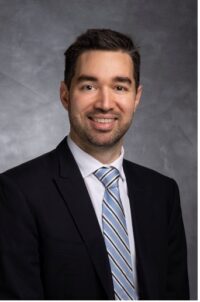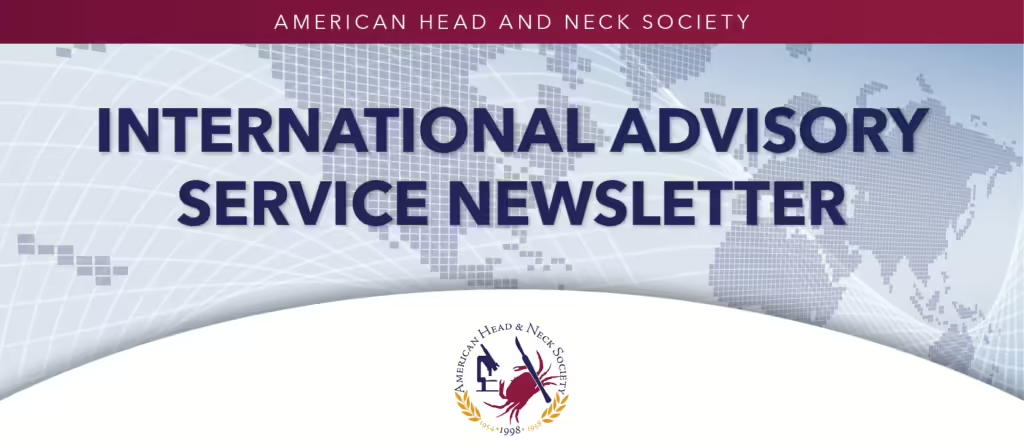
Dear Friends,
We are thrilled to announce the launch of the American Head and Neck Society’s first International Advisory Service (IAS) newsletter. This newsletter is a significant step in bringing together head and neck surgeons from around the world who are connected to AHNS in some way and are interested in participating in upcoming research and professional development initiatives, not only with other AHNS sessions but also with other institutions.
One of AHNS-IAS’s main goals is to create opportunities for multi-institutional studies, collaborative professional development in different areas of our specialty, and building AHNS global relationships. This newsletter will highlight some of these initiatives. We especially thank the Regional Directors who contributed to this first edition.
We sincerely hope that this communication inspires all international members of our society, encourages scientific and professional development, and builds friendships and camaraderie.
Happy reading!
American Head and Neck Society International Advisory Service
Regional Directors
South Africa
Egypt
South and Central America
Middle East
Australia
South Asia
Western Europe
Eastern Europe
Eastern Asia
Jeff Liu
Southeast Asia
Advisors
Brazil – Pablo Ocampo Quintana
Peru – Dora Aranda
Israel – Aviram Mizrachi
India – Akheel Mohammad
We are proud to see a very active fellow trainee team collaborating as part of the International Fellow Initiative (IFI) to broaden the educational and mentorship reach of the international advisory service and the AHNS. For more information for this interested please take the time to visit the IFI website or contact the leadership team.
Sophia Dang
HN fellow at the University of Pennsylvania
Michael Chow
HN fellow at UCSF
Natalia Hajnas
HN fellow at UT Southwestern
Fahad Aldhahri
HN fellow at UF
Eric Abello
HN fellow at Mount Sinai
Head and Neck Surgery in South America
Head and neck surgery in South America is well-established and plays a vital role in treating head and neck cancer. Brazil has the second largest specialty society with around 1500 members; other countries such as Argentina, Chile, and Colombia also have consolidated specialty societies with cutting-edge residency programs in the specialty. Currently, the region has several duly registered and structured medical residency programs, most of which are in Brazil. In addition, several training programs in different specialty areas are offered, allowing development in specific areas. Additionally, we receive several colleagues from other countries outside of South America for training and specialization. The South American Federation of Head and Neck Surgery Societies was created in 1979. In 2014, it became the Latin American Federation of Head and Neck Surgery Societies, showing the strength of the specialty in the region. Next November, Sao Paulo will hold the International Intra-operative Neuro-Monitoring Course in Neck Surgery, including live surgeries and the many important KOLs in the field.
Advancements in the Middle East
In the Gulf countries, the medical community addresses a variety of head and neck cancers, notably thyroid, oral cavity, laryngeal, and nasopharyngeal malignancies. We have established structured Otolaryngology-Head and Neck Surgery residency training programs, some accredited by the Accreditation Council for Graduate Medical Education International (ACGME-I), ensuring comprehensive and standardized training for residents. These programs prepare them to tackle the diverse challenges of these cancers and various otolaryngology cases.
Our commitment to advanced medical education is further evidenced by organizing hands-on cadaver dissection courses in Head and Neck Surgery, Functional Endoscopic Sinus Surgery (FESS), Rhinoplasty, Temporal Bone dissection, and airway management. These practical courses offer invaluable experience, allowing participants to refine their surgical skills and deepen their anatomical understanding in a realistic setting.
We also host annual national and international conferences, which serve as platforms for knowledge exchange. These conferences feature the latest research, innovative techniques, and case studies in head and neck surgery, attracting leading experts and practitioners worldwide. Additionally, we conduct annual head and neck cancer awareness campaigns to educate the public.
We promote multi-institutional research collaborations to advance the understanding and treatment of head and neck cancers. We also encourage residency and faculty exchange programs to facilitate the sharing of expertise and best practices across institutions. This collaborative approach will strengthen our training programs, drive innovation, and improve management outcomes for patients in our region.
Developments in Sub-Saharan Africa
Sub-Saharan Africa has only about 25 trained Head and Neck Surgeons for over 1 billion people. They have been trained through the only two African Head and Neck Fellowships in Cape Town (Johan Fagan) and Cameroon (Wayne Koch and PAACS); an additional 2 Mozambican surgeons were trained in Sao Paolo in Brazil (Luiz Kowalski). Therefore, it is exciting to share that new fellowship programs are being rolled out in Uganda and Ethiopia by past fellows trained in Cape Town, with a fellowship also in the Kenyan pipeline. The fellowships are under the auspices of the African Head and Neck Society (AfHNS).
The AfHNS recently elected its new leadership: the President is A-Prof Melesse. Gebeyehu from Bahir Dar University in Ethiopia, supported by Dr. Kagga Senyonjo in Kampala, Uganda, and Keafon Nchifor (Nairobi, Kenya). The AfHNS has a monthly tumor board on Zoom. Drs Max Kligerman and Merry Sebelik (Emory) are planning an instructional head and neck ultrasound course in December 2024 in Cape Town. This course will hopefully lead to establishing a Head and neck point-of-care ultrasound course to be certified by the AfHNS. It will be juxtaposed to a one-day Head and neck academic meeting followed by a head and neck dissection course supported by IFOS.
The AfHNS looks forward to collaborating with the AHNS through the IAS to strengthen education and training in Africa and to create a global community of young Head and Neck surgeons through the International Young Fellows Group.
Australia and New Zealand Updates
Head and Neck in the Australian and New Zealand region is represented through the Otolaryngology-Head and Neck Societies (ASOHNS and NZSOHNS) and from a multidisciplinary perspective through the Australian and New Zealand Head and Neck Cancer Society (ANZHNCS). Radiation oncologists have been active with trials via the Trans-Tasman Radiation Oncology Group (TROG) for many years. The relatively newly formed Australia and New Zealand Skull Base Society (ANZSBS) includes many aspects of advanced head and neck malignancy.
In our region, head and neck cancer, if thyroid cancer is excluded, is predominately 50% head and neck cutaneous malignancy and 50% mucosal disease. The majority of the mucosal disease is with HPV-driven oropharyngeal cancer. Almost all significant hospitals have multidisciplinary clinics made up of specialty groups involved with head and neck cancer, and it is rare for our patients not to be assessed via one of these clinics. These clinics are based within major public hospitals, but those clinics will also give all our private patients an opinion. These clinics are an excellent source for accessing trial patients.
Clinical research is intense within the region and is regarded as a favored destination for early-phase clinical trials. There is also a robust translational tradition, with most major hospitals attached to research institutions. Many active trials recruiting in head and neck cancer can be found at https://www.anzctr.org.au. Our region is always keen to participate in multi-centered international trials.
Head and Neck Cancer Australia (HNCA) is a national charity dedicated to educating and supporting people with Head and Neck Cancer. HNCA is a unique collaboration of patients, family members, carers, and clinicians working to educate, support, and reduce the cancer burden in some of the most disenfranchised cancer patients. HNCA is also dedicated to raising awareness and improving the outcomes of those affected through education, information, support, and advocacy.
Insights from Egypt
I am pleased to participate in this inaugural activity of the International Advisory Service. I am writing this as a proud representative of the service in my home country – Egypt.
More than 100 million people live in Egypt. The prevalence of head and neck cancer among Egyptians is not uncommon, with smoking being prevalent predominantly in males. Laryngeal and papillary thyroid carcinoma represent the most common head and neck malignancy frequently encountered by Egyptian otolaryngologists. General surgeons and surgical oncologists also participate in caring for head and neck cancer patients in Egypt.
To improve the region’s specialty training, the Otolaryngology Department at Cairo University hosts an annual head and neck surgery course with hands-on training opportunities. Trainees attend lectures and perform cadaveric dissection under the supervision of dedicated Head and Neck Surgeons of the Otolaryngology Department Faculty. Multiple other institutions affiliated with governmental universities in the country host meetings and scientific events discussing the recent advances of head and neck surgery and how to practically apply them to the local practice. During the COVID-19 pandemic, the Egyptian Otolaryngology Society hosted multiple webinars inviting international speakers and world-class surgeons to share their head and neck surgery expertise. There are always reserved slots for head and neck oncology in the annual conferences hosted by the Otolaryngology Department at Cairo University and the Egyptian Otolaryngology Society. In addition to that, the National Cancer Institute – affiliated with Cairo University – has been approved by the IFHNOS as an accredited training center for the practical part of the online head and neck surgery global fellowship.
The number of fellowship-trained head and neck surgeons in Egypt is limited. However, the specialty is gaining popularity among junior otolaryngologists in Egypt. Research mainly focuses on reducing the incidence of post-laryngectomy pharynx cutaneous fistula and improving the outcomes and quality of life after thyroidectomy.
In Egypt, head and neck cancer patients usually receive their treatment at academic tertiary care institutions. The main surgical challenge is the employment of free tissue transfer and microvascular reconstruction. Plastic surgery services typically carry out this mission at institutions that need well-trained otolaryngology reconstructive surgeons. The economic burden of transoral robotic surgery is a significant factor limiting its wide use in Egypt. Despite that, sialendoscopy is gaining popularity. In Alexandria, an annual course is hosted by the Otolaryngology Department at Alexandria University, which includes lectures and hands-on training.
Participation from the AHNS to help advance the specialty in Egypt one step forward should focus on providing opportunities to train Egyptian surgeons interested in head and neck surgery, especially in the weaknesses mentioned above. The reduced cost of membership offered by the AHNS and the AAO-HNS for Egyptian surgeons adds to the value of international collaboration. This can further be augmented by applying discounts for participation in scientific events hosted by American organizations and the extensive use of online attendance for international candidates.
This short note can encourage enthusiasm for a fruitful and comprehensive collaboration between the AHNS and the Egyptian health authorities.
Clinical Trials and Opportunities in South Asia
We are honored to serve as the US representative to South Asia on the International Committee of the American Head and Neck Society (AHNS). This newsletter aims to keep you informed about the latest developments, clinical trials, and opportunities in head and neck oncology.
Highlighting Ongoing Clinical Trials
- Nivolumab in Combination with Ipilimumab for Head and Neck Cancer
- Title: “A Phase I/II Study of Nivolumab in Combination with Ipilimumab for Treating Recurrent or Metastatic Head and Neck Squamous Cell Carcinoma”
- Objective: This trial investigates the efficacy of combining two immunotherapies, nivolumab and ipilimumab, for treating recurrent or metastatic head and neck squamous cell carcinoma (HNSCC).
- Participating Centers: Multiple centers across the US and South Asia.
- Current Accrual: Actively recruiting patients across multiple South Asian and US centers citation: Dr. Saba Discusses Ongoing Trials in Head and Neck Cancer.
- Cetuximab with or without Radiation Therapy
- Title: “A Phase II/III Trial of Cetuximab with or without Radiation Therapy in Treating Patients with Resectable Locally Advanced Head and Neck Squamous Cell Carcinoma”
- Objective: To determine if cetuximab alone is as effective as cetuximab with radiation therapy in post-operative settings.
- Participating Centers: Leading cancer institutes in the US and India.
- Current Accrual: Recruiting patients in several locations, including South Asia. Citation: Dr. Saba Discusses Ongoing Trials in Head and Neck Cancer.
- HPV Vaccine and PD-1 Inhibitors for Prevention of Recurrence
- Title: “A Phase II Study of HPV Vaccine in Combination with PD-1 Inhibitors for Preventing Recurrence in HPV-Positive Head and Neck Cancer”
- Objective: Evaluating the impact of HPV vaccines in preventing cancer recurrence.
- Participating Centers: Select centers in the US and across South Asia.
- Current Accrual: Actively recruiting in centers across South Asia and the US citation: Dr. Saba Discusses Ongoing Trials in Head and Neck Cancer.
- STING Agonists and PD-1
- Title: “A Phase I/II Trial of STING Agonists and PD-1 Inhibitors in Head and Neck Cancer”
- Objective: Exploring the potential of STING agonists to enhance the immune response in combination with PD-1 inhibitors.
- Participating Centers: Select centers across South Asia.
- Current Accrual: Actively recruiting in South Asia citation: Dr. Saba Discusses Ongoing Trials in Head and Neck Cancer.
- De-intensified Radiation Therapy with Chemotherapy or Immunotherapy
- Title: “A Phase II/III Trial of De-intensified Radiation Therapy with Chemotherapy (Cisplatin) or Immunotherapy (Nivolumab) in Treating Patients with Early-Stage HPV-Positive Non-Smoking Associated Oropharyngeal Cancer”
- Objective: Examining the efficacy of a reduced dose of radiation therapy combined with either chemotherapy or immunotherapy for early-stage HPV-positive oropharyngeal cancer.
- Participating Centers: Select centers across South Asia.
- Current Accrual: Actively recruiting patients citation: UCSF Head and Neck Cancer Clinical Trials for 2024 — San Francisco Bay Area.
Western Europe
The European Head and Neck colleagues are eager to collaborate with their American Colleagues, as recently evidenced by our welcoming of 140 US delegates from AHNS and AAO-HNS at our successful meeting of CEORL-HNS in Dublin. Joint sessions, networking, and camaraderie were the hallmarks! Read more about CEORL-HNS here
Furthermore, activity is at a high in Europe around Head and Neck Oncology as we approach the Make Sense Campaign and its annual Head and Neck Cancer Awareness Week, focusing on increasing societal awareness of head and neck cancer and its symptoms, aiming at earlier detection and improving survival and QOL, and taking place between September 16-21, 2024. https://makesensecampaign.eu/en/
Professional education is at the forefront with the 16th European Head and Neck Course (November 19-21, 2024), which is a 3-day course during which the group of outstanding specialists from both the USA and Europe will present interdisciplinary issues of head and neck oncology in a clear, substantive manner at the highest level. In conjunction and following that course- the 5th International Symposium on HPV Infection in Head and Neck Cancer (November 21-22, 2024). During this conference, the latest issues in the field of head and neck oncology in the aspect of HPV infection will be widely discussed. Learn more about the 16th European Head and Neck Course here
Next year, we will have the 11th European Congress on Head and Neck Oncology (ECHNO) in Amsterdam, organized by the EHNS, on March 26-29, 2025, where we hope to reconnect with many of our AHNS friends and increase our interaction. https://www.echno2025.com/
There are several international collaborative studies ongoing or about to start, including the following:
- The SCORE trial (Single and Combined modality trans-oral Robotic surgery in Early oropharyngeal cancer: exploring the impact of surgical margins on local disease recurrence; PI Vin Paleri – Royal Marsden) will also soon start collecting the data of robotic surgeons on both continents.
- An upcoming initiative between the EORTC and the AHNS in evaluating antibiotic use in the perioperative stage for low, medium, and high-risk head and neck surgeries, led by Markus Blaurock from University Medicine Greifswald with multiple collaborative sites on both continents
We sincerely hope that this collaborative energy will only increase through IAS to benefit our head and neck cancer patients!
Closing Remarks
We encourage all members to actively participate in these opportunities, which will enhance our collaborative efforts to improve patient outcomes in head and neck oncology. Your contributions and engagement are invaluable to our collective mission.

